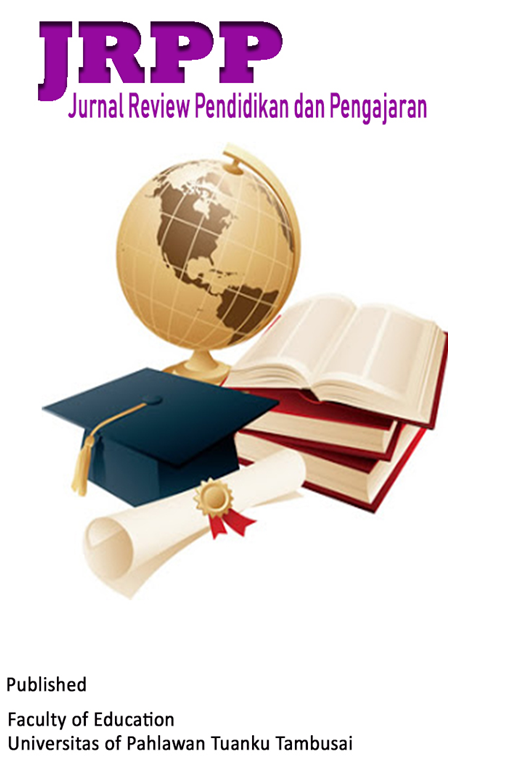OPTIMALISASI GEDSI (GENDER EQUILITY, DISABILITY, SOCIAL INCLUSION) MELALUI SEKOLAH RAMAH ANAK DI SDN MERJOSARI 5 MALANG
DOI:
https://doi.org/10.31004/cdj.v5i1.25824Keywords:
GEDSI, Sekolah Ramah Anak, Sekolah DasarAbstract
Sekolah Ramah Anak (SRA) harus membuat proses pembelajaran yang menyenangkan dengan inovasi dari sekolah dan penerapan disiplin ilmu positif. Tujuan pengabdian ini adalah mengoptimalkan GEDSI melalui penerapan sekolah ramah anak di Sekolah Dasar. Kegiatan yang dilakukan antara lain melalui metode pelatihan (pembinaan dan pendampingan) yang dilakukan dengan strategi kronologis atau bertahap. Pelatihan dilakukan dengan pemberian materi yang dilanjutkan tanya jawab dan praktik langsung serta pembahasan hasil praktik sebagai evaluasi dan feed back. Selain itu, pelatihan dilakukan secara gratis atau tidak dipungut biaya. Hal ini dilakukan dengan tujuan agar peserta lebih tertarik dan antusias dalam mengikuti pelatihan yang diadakan. Pelatihan diberikan oleh para pengabdi yang berkompeten dengan bidang yang berkaitan dengan persoalan mitra. Hasil dari pengabdian ini antara lain peningkatan pemahaman guru dan peserta didik tentang GEDSI dan implementasi Sekolah Ramah Anak (SRA) di jenjang sekolah dasar.References
Bigdely-Shamlo, N., Mullen, T., Kothe, C., Su, K.-M., & Robbins, K. A. (2015). The PREP pipeline: standardized preprocessing for large-scale EEG analysis. Frontiers in Neuroinformatics, 9, 16.
Buchanan, D., Hargreaves, E., & Quick, L. (2023). Schools closed during the pandemic: revelations about the well-being of ‘lower-attaining’primary-school children. Education 3-13, 51(7), 1077–1090.
Cole, M. (2013). Cognitive development and formal schooling. Learning Relationships in the Classroom, 2, 31.
Escalada, M., & Heong, K. L. (2014). Focus group discussion. Research Gate Journal, 3, 178.
Ibda, H., & Wijanarko, A. G. (2023). Pendidikan Inklusi berbasis GEDSI (Gender Equality, Disability and Social Inclusion). Mata Kata Inspirasi.
Kosciw, J. G., Palmer, N. A., Kull, R. M., & Greytak, E. A. (2013). The effect of negative school climate on academic outcomes for LGBT youth and the role of in-school supports. Journal of School Violence, 12(1), 45–63.
Lewallen, T. C., Hunt, H., Potts?Datema, W., Zaza, S., & Giles, W. (2015). The whole school, whole community, whole child model: A new approach for improving educational attainment and healthy development for students. Journal of School Health, 85(11), 729–739.
Mishra, L. (2016). Focus group discussion in qualitative research. TechnoLearn: An International Journal of Educational Technology, 6(1), 1–5.
Oktafiani, V., Yanti, S. D., & Yunita, K. S. (2024). Sosialisasi Kebijakan Dan Strategi Pencegahan Perkawinan Anak Dalam Perspektif GEDSI. Scitech Jurnal Pengabdian Masyarakat, 1(1), 14–18.
Peters, O. (2020). Distance teaching and industrial production* A comparative interpretation in outline. In Distance education (pp. 95–113). Routledge.
Rousso, H. (2015). Education for All: a gender and disability perspective.
Sleeter, C. E., & Grant, C. A. (2017). Race, class, gender, and disability in current textbooks. In The politics of the textbook (pp. 78–110). Routledge.
Sudhiastiningsih, N. N. S. N., Agustina, T., & Priadi, C. R. (2024). Analysis of water, sanitation, and hygiene (WASH) implementation based on GEDSI and climate resilience in Kupang City. E3S Web of Conferences, 485, 4001.
Tran, N. H. T., & Foley-Donoghue, J. (2023). Cambodia Livelihoods Program Evaluation.
Vada, S., Gibson, D., Masau, N., Bibi, P., & Johnson, H. D. (n.d.). N. and Powell, B.(2021) Safe destinations, healthy communities, and happy tourists: Guidelines for Government on Gender Equality, Disability and Social Inclusion in Water, Sanitation and Hygiene Fiji’s tourism sector. Report prepared by International WaterCentre, Griffith University. Brisbane ….
Van Eeuwijk, P., & Angehrn, Z. (2017). How to… Conduct a Focus Group Discussion (FGD). Methodological Manual.
Wei, X., Lenz, K. B., & Blackorby, J. (2013). Math growth trajectories of students with disabilities: Disability category, gender, racial, and socioeconomic status differences from ages 7 to 17. Remedial and Special Education, 34(3), 154–165.
Witjes, S., & Lozano, R. (2016). Towards a more Circular Economy: Proposing a framework linking sustainable public procurement and sustainable business models. Resources, Conservation and Recycling, 112, 37–44.
Downloads
Published
How to Cite
Issue
Section
License
Copyright (c) 2024 Yohana Puspitasari Wardoyo

This work is licensed under a Creative Commons Attribution-ShareAlike 4.0 International License.















